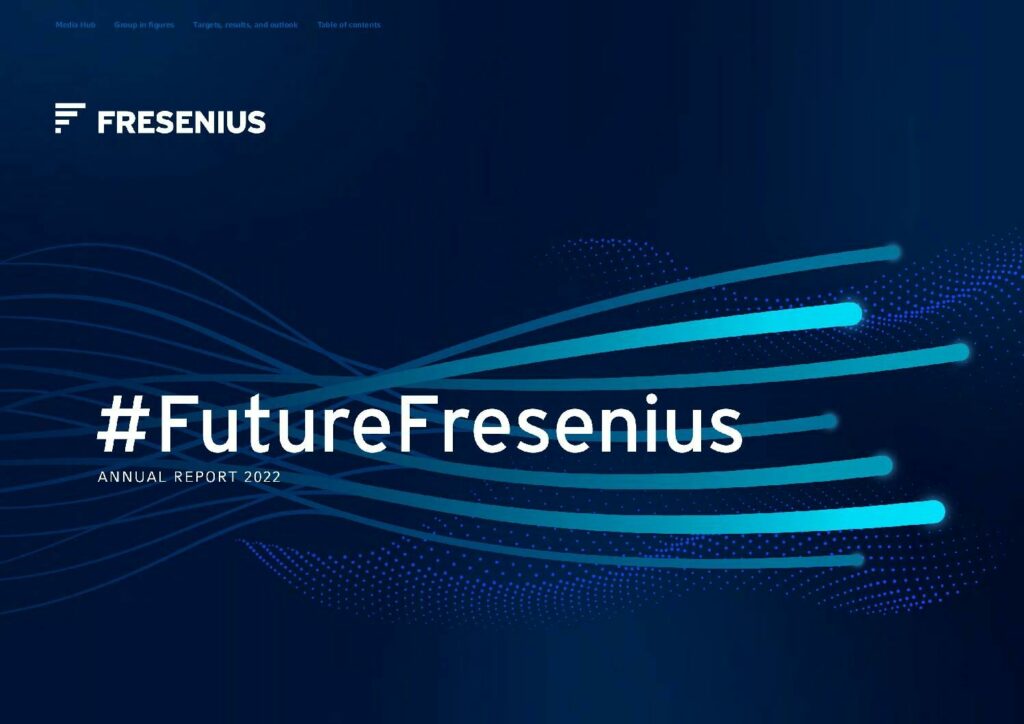Fresenius offers various benefit components on a corporate and business segment level. These encompass, for example, employee benefit programs, profit-sharing bonuses, pension plans, compensatory time accounts, and tariff-based future payments. Not all elements are implemented equally within the Fresenius Group, but can, however, be accompanied by local benefits depending on the market and employee requirements and regulatory provisions.
Fresenius Medical Care
The Total Rewards packages of Fresenius Medical Care are designed to reflect the relative value of each job and support career progression in line with market trends and local requirements. In 2022, the company started a review of its global rewards strategy, including existing approaches and ongoing activities. From 2023, the business segment aims to further define the global rewards strategy, harmonize programs and processes, and set global standards on topics such as salary structures. The development of a global job architecture will increase the transparency and comparability of positions. It will also serve as a basis for making decisions on career development, compensation and benefits offers, and strategic workforce planning.
In 2022, Fresenius Medical Care developed a Fair Pay Statement. This global position statement outlines the commitment to applying fair pay and compensation principles to its employees. The business segment focuses on developing pay structures that are market competitive and internally equitable. The pay structures are also designed to support career progression and reward and incentivize measurable performance.
Fresenius Kabi
Due to the ongoing reorganization measures, Fresenius Kabi’s management approach to employee retention focuses on creating structures that support the long-term success of the business segment. After successful implementation of the planned measures within the framework of Vision 2026, further employee retention activities can be implemented as needed. In addition, the business segment is already working on potential approaches to strengthen its employer brand.
Fresenius Helios
At Fresenius Helios, the largest employee group comprises trained nurses and doctors, who account for more than half of the employees in the business segment. The share of nursing staff in the total number of employees in the hospital varies depending on the size of the hospital. In Germany, it averages more than 40%; in Spain, it is more than 20% due to the higher proportion of outpatient treatment compared to German clinics. Therefore, employee retention measures must be specified to meet the needs of nurses or doctors, which vary from those of staff working in administrative functions. As flexible working models are limited in the nursing sector, benefits are granted here in particular, such as private supplementary health insurance, old-age provision, or in Spain also the conversion of salary components for defined benefits. The compatibility of family and career is also promoted. For example, Helios Germany offers child care places for employees’ children in 35 kindergartens – both in company and cooperative facilities.
The internal mobility policy of Helios Spain specifies that all vacancies are to be published in the employee portal on the intranet with the goal of retaining employees within the clinic Group. In doing so, the division highlights opportunities and career paths to professionals who want to develop further, while making an important contribution to retaining talent.
Fresenius Vamed
The benefits offered to Fresenius Vamed employees are diverse. In Austria, the benefits range from occupational health offers, employee restaurants or meal vouchers, employee discounts (e. g., for our health tourism facilities), a pension fund, supplementary health insurance, employee parking, company apartments, and child and vacation care, to flexible work models (e. g., part-time models, home office). Depending on the facility and collective bargaining options, employees in Germany receive special benefits and discounts at the segment’s hospitals and tourist facilities as well as with external providers (e. g., fitness studios). Furthermore, they receive subsidies for the company pension plan, and they can use bike leasing or job tickets. In the Czech Republic, employees receive a specific budget with which non-financial benefits can be obtained according to their individual preferences. In Switzerland, employees are also offered various benefits, e. g. via hotel cards or fuel cards.

